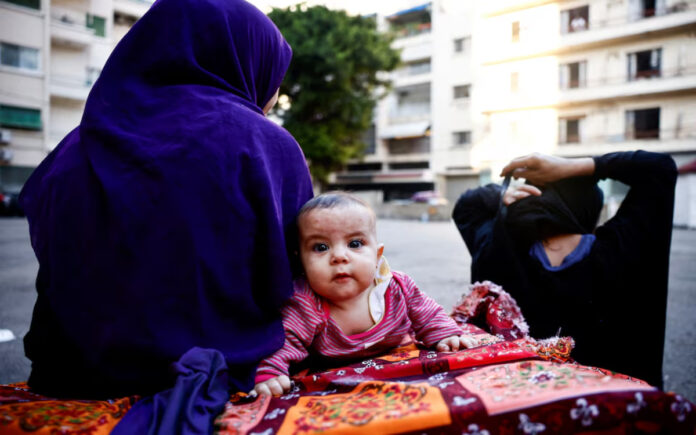Paris: World powers are gathering in Paris on Thursday for a conference aimed at providing urgent humanitarian aid to Lebanon, supporting its security forces, and pushing for a ceasefire. However, diplomats have tempered their expectations, citing the U.S. focus on its own diplomatic efforts. Concrete progress is not anticipated.
France, which has historical ties to Lebanon, has been working alongside Washington to broker a ceasefire. However, its influence has waned since Israel launched a large-scale offensive against Iran-backed Hezbollah in September, leading to the displacement of thousands and over 2,000 deaths.
The conference, hastily arranged by Paris, aims to demonstrate that France still holds sway in its former protectorate. Yet, despite the presence of 70 delegations and 15 international organizations, few high-profile ministers are expected to attend.
U.S. Secretary of State Antony Blinken has chosen to prioritize a last-ditch diplomatic tour of the Middle East ahead of next month’s U.S. election, skipping the Paris meeting and sending a deputy in his place. Similarly, Saudi Foreign Minister Prince Faisal bin Farhan Al Saud, whose country has shown reluctance to engage in Lebanon, will also be absent.
A framework document sent to attendees outlines the conference’s goals: reiterating the need to cease hostilities based on the 2006 U.N. Security Council Resolution 1701, which calls for southern Lebanon to be free of any troops or weapons other than those of the Lebanese state. Another key objective is mobilizing international support to assist the 500,000 to 1 million people displaced by the conflict, with Lebanon stating that $250 million per month is needed to manage the crisis.
The conference also seeks to bolster support for the Lebanese Armed Forces (LAF), viewed as the guarantor of internal stability and essential to implementing Resolution 1701. Ensuring that salaries are paid, food and medical supplies are provided, and the LAF receives necessary equipment and training is seen as vital. This support would enable the LAF to expand its forces and eventually deploy to the southern regions of Lebanon, officials noted.
“It is important that we are able to progress and bring concrete responses,” a French presidential official remarked ahead of the conference.
Lebanese Prime Minister Najib Mikati, along with key ministers involved in relief efforts, will be in attendance. However, neither Israel, whose Prime Minister Benjamin Netanyahu has criticized the initiative, nor Iran, were invited to the event.
Also Read | Ukraine Faces Heavy Russian Assault as Two Villages Fall in Eastern Donetsk
Concerns Regarding Coordination Between France and the U.S.
There are also concerns about the coordination between Paris and Washington. Paris has been pushing Lebanese political actors to help end the two-year presidential power vacuum, despite reluctance from certain factions. While France claims its direct contact with Hezbollah and Iran offers a strategic advantage compared to U.S. mediation, some diplomats question what can realistically be achieved on the political front.
U.S. special envoy Amos Rothstein was in Beirut on Monday, where he suggested that committing to a previous U.N. resolution would not suffice to end the conflict. However, he did not mention Paris in his remarks, despite meeting with President Emmanuel Macron’s diplomatic adviser on Wednesday.
“France wants a ceasefire and believes that Hezbollah cannot be eliminated. It seeks to maintain the relationship it has cultivated with Hezbollah,” said a Middle East diplomat. “On the other hand, the U.S. wants the destruction of Hezbollah and is encouraging Israeli forces to go further.”
Also Read | Interim Government Outlaws Bangladesh Chhatra League Amid Rising Unrest
European officials have expressed concern over Washington’s reluctance to call for an immediate ceasefire, with some fearing that the U.S. position may remain unchanged until after the Nov. 5 election.
“It’s unclear what the French hope to achieve with this conference,” said a Western diplomat. “France is furious with the U.S. for allowing Israeli operations to continue, while the U.S. is keen to keep the French at a distance.”



